 If you like gardens and visit China try to include a visit to the city of Hangzhou, 112 miles south of Shanghai. You will not visit lots of gardens there, nor visit one spectacular garden, but you will experience a place that has a significant role in the development of Chinese gardens. Besides its history and the fact it was once the site of many elegant gardens, Hangzhou is presently home to one of the most scenic and beautiful spots in China, the West Lake. This lake, surrounded by a ring of wooded hills on three sides, provided inspiration to many garden fanciers for centuries.
If you like gardens and visit China try to include a visit to the city of Hangzhou, 112 miles south of Shanghai. You will not visit lots of gardens there, nor visit one spectacular garden, but you will experience a place that has a significant role in the development of Chinese gardens. Besides its history and the fact it was once the site of many elegant gardens, Hangzhou is presently home to one of the most scenic and beautiful spots in China, the West Lake. This lake, surrounded by a ring of wooded hills on three sides, provided inspiration to many garden fanciers for centuries.
The West Lake, Xi Hu, was created from a shallow sea inlet over a period of about 2,000 years and is essentially a man-made lake. It covers an area about 1600 acres (2 ½ square miles), has a circumference of a little over 9 miles, and is less than 5′ deep.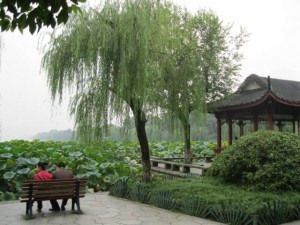
There are three causeways or bridges over the lake and three man-made islands in it.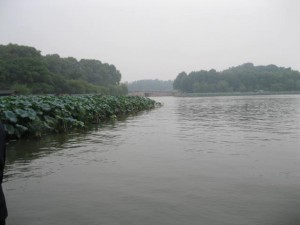
The graceful willows and peach trees, the rising mist, and the surrounding hillsides all contribute to make this one of the most beautiful places in China.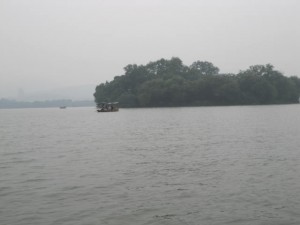
The typical tourist visits the Lake by means of a short boat ride but a bike ride around the circumference is available.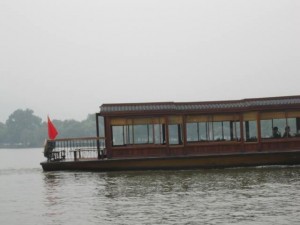
While riding on the lake in a tourist boat you can enjoy the more exotic looking old fashioned style boats.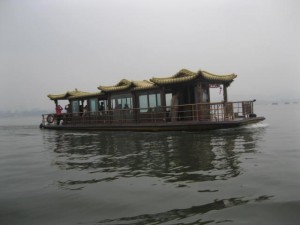
The development of the West Lake took off during the southern Song dynasty (1127–1279) when they moved the capital to Lin’an, now Hangzhou. The area was exceptionally prosperous due to the production of agricultural goods including rice and silk. The wealthy businessmen of Hangzhou built grand villas and gardens along the edge of the lake and the Emperor followed with palaces and pavilions. Artisans flocked to the city to meet the demands of the emperor and wealthy citizenry leading to a very high level of workmanship in the area. The gardens no longer exist but the beauty of the site is still breathtaking.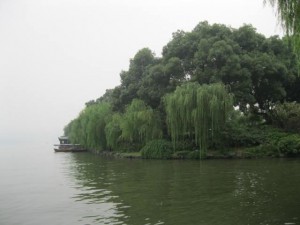
Today, you can enjoy the parklands that surround the lake. With a large population, the Chinese government has made a big effort to provide inviting parks.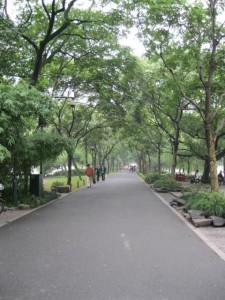
There are no grand gardens around the West Lake anymore, but the sensitivity of Chinese gardeners to nature is still evident.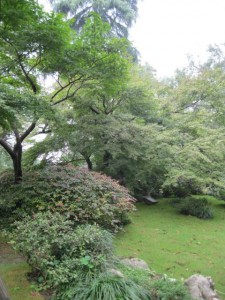
The characteristic elements of Chinese gardens including rocks and pavilions are integrated into the landscape.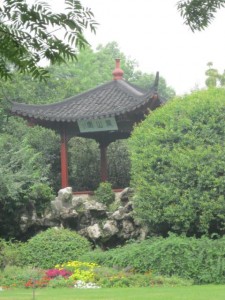
Above all, man and nature exist together in harmony creating a peaceful and memorable experience.
